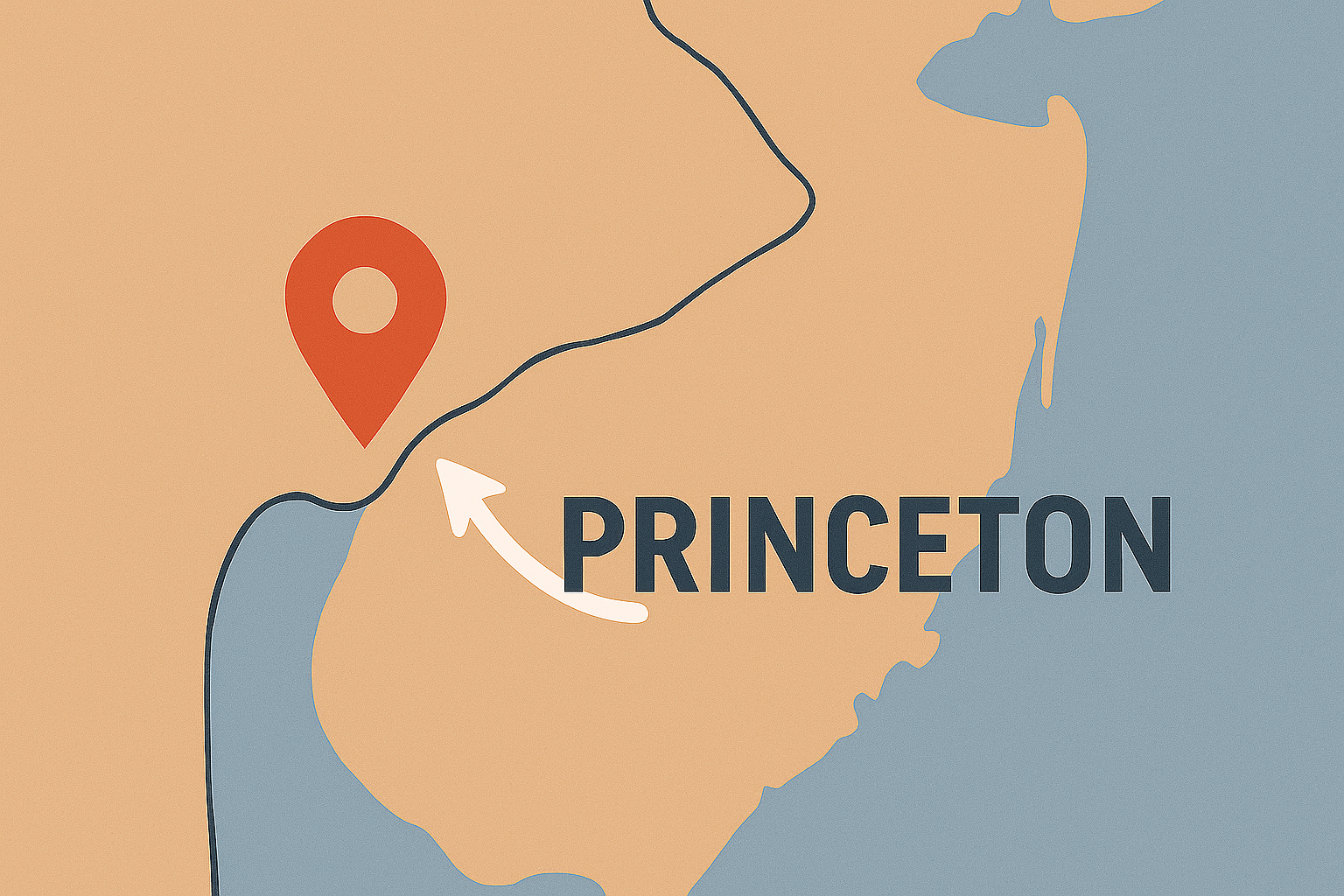Are you in Princeton, New Jersey, and considering anger management therapy?
Finding Calm in a High-Pressure Princeton Life
Anger is a normal human emotion—a natural response to stress, frustration, or perceived threat. When expressed in healthy ways, it can help you set boundaries and solve problems. But when anger becomes chronic, overwhelming, or uncontrolled, it can disrupt your relationships, physical health, and overall mental well-being.
In a community as intellectually vibrant and ambitious as Princeton, New Jersey, intense anger can surface easily under pressure. Many residents balance demanding careers, academic achievement, and family responsibilities. Whether you are a university student navigating exams, a healthcare provider supporting patients, or a professional managing constant deadlines, these stress levels can lead to persistent anger, angry outbursts, or even physical health conditions such as high blood pressure.
As a licensed mental healthcare provider, I help individuals manage anger effectively through personalized therapy sessions designed to address both the emotional and psychological roots of anger. Anger management therapy provides valuable resources to help clients develop coping skills, improve anger control, and rebuild healthy relationships with family members and romantic partners. By exploring underlying mental health issues, negative beliefs, or unresolved trauma, therapy can help reduce negative feelings, social withdrawal, and the risk of self-harm or domestic violence.
Virtual anger management therapy offers Princeton residents a confidential and flexible way to access care. Through talk therapy, cognitive and psychodynamic approaches, and evidence-based anger management classes, clients learn practical techniques such as identifying triggers, using assertiveness training, and applying relaxation and problem-solving skills to reduce angry emotions.
Ready to Start Therapy?
Your healing journey can begin today. Fill out the form below to connect with a therapist who truly listens and understands.
This post will explore how anger management therapy supports people living in high-pressure environments like Princeton. We’ll look at how therapy helps you understand your emotional patterns, strengthen anger management skills, and use healthy coping tools to turn intense emotions into balance, resilience, and personal growth.
Recognizing Anger in a High-Pressure Environment
In a community that values drive and achievement, anger can be easily disguised. It may not always manifest as loud outbursts. Instead, it can simmer beneath the surface as persistent irritability, a short temper with loved ones, cynical commentary, or a constant feeling of frustration. You might find yourself snapping at colleagues over minor issues, feeling resentful about your workload, or bringing work stress home, creating tension in your personal relationships.
For many high-achievers in Princeton, these patterns are often dismissed as just part of a demanding lifestyle. However, ignoring them can have serious consequences for your mental and physical health, relationships, and career. Unresolved anger is frequently linked to other concerns, such as anxiety, depression, and even physical health problems like high blood pressure and heart disease.
Recognizing that anger has become a problem is the first, most crucial step toward change. It isn’t a sign of weakness; it is an act of self-awareness and strength. It is an acknowledgment that you deserve to feel more balanced, in control, and at peace.
How a Trained Mental Health Professional Can Help
Navigating intense emotions on your own can feel isolating and overwhelming. A licensed psychologist provides a safe, non-judgmental space to explore the roots of your anger and develop effective strategies for managing it. As a psychologist offering virtual therapy to clients across New Jersey, I create personalized treatment plans that are tailored to each individual’s unique circumstances and goals.
Your journey toward emotional balance is your own. My approach integrates proven, evidence-based methods like Dialectical Behavior Therapy (DBT) and Cognitive Behavioral Therapy (CBT). We work together to understand your triggers, challenge unhelpful thought patterns, and build a toolkit of practical skills for emotional regulation.
Virtual therapy removes many of the traditional barriers to seeking help. For Princeton residents with demanding schedules, the convenience of online sessions means no travel time and greater flexibility in scheduling. It also offers a heightened level of privacy, allowing you to engage in therapy from the comfort of your home or office. In some situations, group or family therapy can be incorporated to improve communication dynamics and restore connections with the people who matter most.
Learning to Express Anger in Healthy, Constructive Ways
A common misconception is that anger management is about suppressing or eliminating anger entirely. In reality, the goal is to learn how to understand, process, and express this powerful emotion in a healthy and constructive manner. When channeled correctly, anger can be a motivator for positive change, helping you set boundaries, solve problems, and advocate for yourself.
Through therapy, clients develop essential skills for healthy expression. These include:
- Communication Skills: Learning to articulate your feelings and needs calmly and assertively, rather than resorting to passive-aggression or explosive reactions. This improves relationships at work, school, and home.
- Coping Skills: Building a set of go-to techniques for when you feel anger rising. This might include taking a timeout, engaging in physical activity, or practicing mindfulness exercises to create space between a trigger and your response.
- Emotional Control: Developing the ability to respond thoughtfully instead of reacting impulsively. This involves recognizing the physical and emotional signs of anger and intervening before it escalates.
Relaxation techniques are also a cornerstone of effective anger management. Practices like deep breathing, progressive muscle relaxation, and visualization can help lower the body’s physiological arousal, calming your nervous system and allowing your rational mind to re-engage.

Photo by Nellie Adamyan on Unsplash
Identifying Your Triggers in Daily Princeton Life
A key part of managing anger is building awareness of what sets it off. In Princeton, triggers can be found everywhere in daily life. It might be the stress of commuting on Route 1, the frustration of finding parking near Nassau Street, the pressure of an impending academic deadline at the university, or a difficult interaction with a supervisor.
These everyday stressors can accumulate, chipping away at your emotional resilience until a seemingly minor event causes a disproportionate reaction. In our sessions, we work to identify these specific triggers. By recognizing the situations, people, or thoughts that spark your anger, you gain the power to anticipate and manage your reactions more effectively.
Once triggers are identified, we can implement targeted strategies like problem-solving and stress inoculation. For example, if you know that a weekly team meeting is a source of frustration, we can develop a plan to help you prepare mentally, practice assertive communication, and decompress afterward. These proactive steps prevent anger from escalating and help you feel more in control of your emotional state.
Evidence-Based Therapies for Lasting Change
Effective anger management therapy is grounded in scientific research. Two of the most powerful and widely used approaches are Cognitive Behavioral Therapy (CBT) and Dialectical Behavior Therapy (DBT).
Cognitive Behavioral Therapy (CBT) focuses on the connection between your thoughts, feelings, and behaviors. A core component of CBT is cognitive restructuring, a process that helps you identify and challenge the negative or irrational thought patterns that fuel anger. For instance, you might learn to reframe a thought like “My colleague is intentionally trying to undermine me” to a more balanced perspective, such as “My colleague is under a lot of pressure, and their communication style is direct.” This shift in thinking can dramatically reduce feelings of anger and lead to more productive decision-making.
Dialectical Behavior Therapy (DBT) is particularly effective for individuals who experience intense emotions. DBT teaches four key skill sets: mindfulness, distress tolerance, emotion regulation, and interpersonal effectiveness. These skills empower you to stay present in the moment, tolerate painful situations without making them worse, manage and change overwhelming emotions, and communicate your needs in a way that maintains self-respect and strengthens relationships.
For some individuals, a psychodynamic approach may also be beneficial. This therapy explores the deeper, often unconscious roots of anger, which may stem from unresolved childhood trauma, past emotional wounds, or ingrained family patterns. By bringing these underlying issues to light, you can work toward healing and break free from old cycles.
Why Virtual Therapy Works for Princeton Residents
Virtual therapy is more than just a convenience; it’s a strategic solution that fits seamlessly into the lives of busy Princetonians. Here’s why it is so effective for this community:
- Accessibility for Professionals: Professionals in demanding fields like tech, law, finance, and healthcare often have unpredictable schedules. Online therapy eliminates the commute, making it possible to fit a session into a lunch break or between meetings without leaving the office.
- Privacy for Students: University students may feel hesitant to visit an on-campus counseling center. Virtual therapy offers a confidential alternative, allowing them to seek support from a private location without fear of stigma.
- Flexibility for Families: For parents balancing careers and family life, finding time for in-person appointments can be a logistical nightmare. Telehealth makes it easier for one or both parents to engage in therapy without disrupting the family schedule.
- Consistent, High-Quality Care: Using secure, HIPAA-compliant video platforms, virtual sessions provide the same level of professional, face-to-face interaction as in-person therapy. You receive expert care from a licensed psychologist dedicated to your growth.
By removing practical barriers, virtual therapy empowers more people in Princeton to prioritize their mental and physical health. It provides the support needed to develop robust coping skills, manage stress effectively, and build lasting emotional resilience.

Build Emotional Strength and Balance in Princeton
Anger is not an enemy to eliminate. It is a normal human emotion, an internal signal that something in your life needs attention. When anger becomes uncontrolled or persistent, it can lead to negative consequences that affect both mental and physical well-being. Chronic anger, angry episodes, or intense anger often point to deeper mental health concerns or unresolved trauma that deserve compassionate understanding rather than judgment.
As a licensed psychologist and anger management therapist, I help individuals learn to manage anger effectively through evidence-based therapy sessions designed to reduce angry feelings, identify triggers, and develop coping skills. Through psychodynamic therapy and other therapy types, we explore the psychological roots of anger, including negative beliefs, perceived threats, and previous experiences that may be fueling emotional intensity.
In virtual sessions, Princeton residents—including young adults and professionals—can work privately and flexibly to address anger issues, improve anger management skills, and build healthier relationships. Some clients benefit from group therapy sessions that strengthen communication and provide perspective, while others focus on one-on-one approaches tailored to their goals. Together, we examine patterns of anger problems, from intermittent explosive disorder to social withdrawal or physical health conditions linked to stress.
If you live in Princeton or anywhere in New Jersey and often feel angry or notice anger management issues affecting your life, I invite you to take the next step. Through virtual therapy, we can transform emotional intensity into insight and control, reducing the increased risk of harm to yourself or your relationships and helping you restore both your mental and physical well-being. Managing anger is not about suppression; it is about harnessing it as a powerful force for balance, awareness, and lasting growth.


